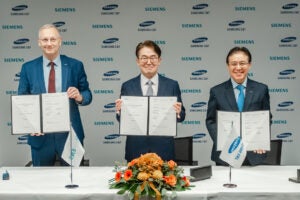In a surprising decision, a federal agency surrendered some of its regulatory authority—and parts of the industry don’t approve. The Federal Energy Regulatory Commission declined to defend its jurisdiction over station power in the California power market, potentially giving an economic advantage to utility generators nationwide and putting merchant generators at a disadvantage.
In a remarkable turn of events, the Federal Energy Regulatory Commission (FERC), in a set of orders affecting the territory controlled by the California Independent System Operator (CAISO), reversed its longstanding policy permitting generators to net against their positive electricity output their station power requirements—the electricity required by a generation station to start up its turbines, operate its machinery, and keep lighting, heating, air conditioning, and other equipment operating.
FERC’s Abrupt About-Face
Since 2001, FERC has regulated how station power is supplied to electric generators, ensuring that all generators, both utility-owned and merchant-owned, can net their positive output against their power requirements. FERC’s netting policy put utility and merchant generators on the same footing, ending the utilities’ attempts to bill merchant generators for station power at retail rates following the utilities’ divestiture of those very same facilities. Last year, however, a U.S. Court of Appeals rejected FERC’s authority over interstate transmission as a valid basis for FERC’s regulation of station power in CAISO. In the proceeding following the court’s order, FERC stated, without analysis, that the remaining jurisdicitonal scope conferred upon it by the Federal Power Act (FPA) did not extend to the regulation of station power, but instead that station power was subject to the states’ jurisdiction over retail sales.
FERC’s decision threatens to impair competition in wholesale power markets. Instead of netting their station power requirements against their positive output, merchant generators may now have to buy station power from local utilities, exposing them to high retail rates for the very product they produce. At the same time, FERC’s abandonment of its longstanding netting policy leaves unaffected the practice of vertically integrated utilities supplying station power “in-house,” for their own generation facilities, a cost-free practice that traditionally has not been treated and accounted for as a retail sale.
Needlessly Surrendering Authority
FERC’s reasoning makes clear its belief that it has no jurisdiction to require that netting be used to determine the amount or pricing for station power. However, FERC’s conclusion was neither inevitable nor necessary, as it ignored the full scope of its authority to regulate the wholesale sales market, including station power.
FERC’s regulation of station power falls squarely within its wholesale energy market jurisdiction; it is not only a matter of incidental regulation of a practice affecting the wholesale markets. Allowing a generating facility to net its station power requirements against its gross electric output is nothing more than allowing that facility to engage in a reverse or exchange wholesale energy transaction, which takes place entirely within the bounds of the wholesale energy market.
The direct and substantial relationship between station power and FERC’s wholesale market jurisdiction also extends beyond the character of the netting transaction. Permitting one set of generators to self-supply station power while leaving another set open to high retail charges is both discriminatory and will lead to overall higher electricity costs and attendant price distortions in the wholesale power market. For these reasons too, FERC has the authority to regulate station power to rectify discriminatory or preferential practices and ensure the efficiency and integrity of the wholesale market.
Re-Level the Playing Field
As a result of FERC’s reluctance to confront the question of the extent of its wholesale sales jurisdiction, the promotion of competition in the wholesale power markets may face a serious setback. Independent merchant generators across the country may be deprived in the future of netting their station power requirements and instead could be billed millions of dollars for electricity at retail rates. However, merchant generators with an interest in preserving the longstanding practice of netting station power have solid arguments for any future proceedings in the courts or before FERC.
— Mark R. Robeck (mark.robeck@bakerbotts.com) is a partner in the Houston office of Baker Botts LLP. Emil J. Barth (emil.barth@bakerbotts.com) is an associate in the Washington, D.C., office of Baker Botts LLP. Robeck and Barth have advised generators on FERC’s station power policies. The views expressed in this article are those of the authors and do not necessarily reflect the views of the firm or its clients.







